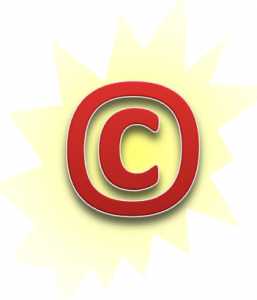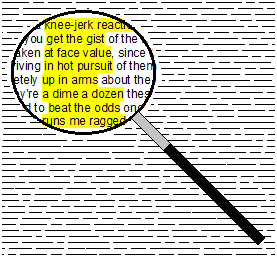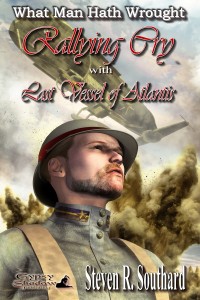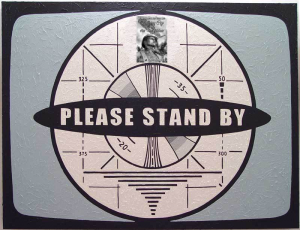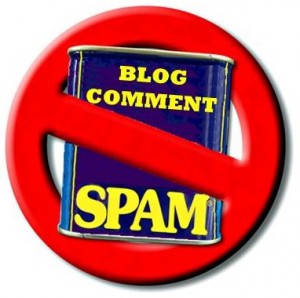Is your brain in a rut? If so, you’re not alone. Today I’ll examine this tendency and suggest what you can do about it.
For all its desirable features, the human brain suffers from a love of the familiar and a fear of the unknown. This served as a good survival trait for our ancestors in their world, but it’s no advantage for a writer today.
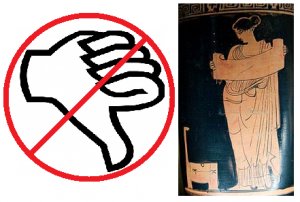 This hard-wired preference probably prevents many people from becoming writers in the first place, since that can be a scary unknown. Even for those of you who’ve chosen to writers, this unfortunate brain feature keeps you using the same vocabulary words, writing about the same topics in the same genres, writing stories with the same themes and using very similar characters. It thwarts your creative urge, putting you at war with your muse.
This hard-wired preference probably prevents many people from becoming writers in the first place, since that can be a scary unknown. Even for those of you who’ve chosen to writers, this unfortunate brain feature keeps you using the same vocabulary words, writing about the same topics in the same genres, writing stories with the same themes and using very similar characters. It thwarts your creative urge, putting you at war with your muse.
As I’ve said before, your muse gets bored with the familiar and seeks the new and fresh. She grabs your arm and pulls you away from the safe and the known, beckoning you to explore the untrodden path. Her brain is wired in a different way.
Perhaps you disagree, thinking you don’t suffer from the malady I’ve described. You deny being a creature of habit who rushes to the familiar and avoids the unknown. Fine. Here’s your test. Tonight, before going to bed, hide your toothbrush. Let’s see how Mr. or Ms. Creativity handles things the next morning. Good luck!
For a great illustration of the problem, I encourage you to read “The Calf Path” by Sam Walter Foss. This poem paints an amusing metaphor of how our brains work.
Advertising Director Gina Sclafani wrote about dealing with the phenomenon. I find it interesting how she thought at first the task would be easy, since she prided herself on being open-minded. Then she well describes the difficulty, the inner resistance, to any steps outside the mind’s comfort zone. In the end, she’s glad she did, because the rewards are great, but she warns it is a journey pitting one part of your mind against a powerful counteracting part.
Here’s a three-step method you could try as a writer to push yourself out of your comfort zone. I’ll illustrate it with story genres, but it could also work with characters, themes, settings, style, or any aspect of story-writing in which you’re stuck.
1. Make a list of story genres you’d never consider writing about. Include the ones you find stupid, abhorrent, unseemly, etc. It’s no big deal, right? After all, you’re never going to write in any of these genres.
2. Spend five to ten minutes thinking through each genre on your list. Think about each one as follows: “I’ll never write in this genre, of course, but if I were to do so, here’s the story I’d write…” You needn’t write down any of these ideas, just think through them.
3. Now let some time pass. A few days, weeks, or even months. This allows your muse to do her thing. You might well find she’s yanking on your arm and leading you down an unfamiliar path toward writing in one of those unwanted genres.
A similar thing happened to me. I knew I’d never write in the horror genre. Then I noticed a publisher seeking stories for an anthology to be called Dead Bait. I dismissed it, but my muse didn’t. She worked on the idea for a story she made me write called “Blood in the River.” I’m still not a horror story writer, but it felt good to get out of the comfort zone.
One final thought. At one point in their lives, each of history’s greatest contributors (think of da Vinci, Shakespeare, Bach, Edison, Einstein, etc.) had to leave a comfort zone in order to develop his or her eventual talents. Imagine the loss to mankind if one of them hadn’t taken that step? What if you could become a popular, successful, or timeless writer if only you stretch your mind in a direction it doesn’t want to go?
You’ll have to excuse me. This calf-path I’m walking along is nice, but some woman wearing a chiton is tugging at my sleeve. “What’s that? Where? But that’s off the path and looks terrifying to—
Poseidon’s Scribe”



